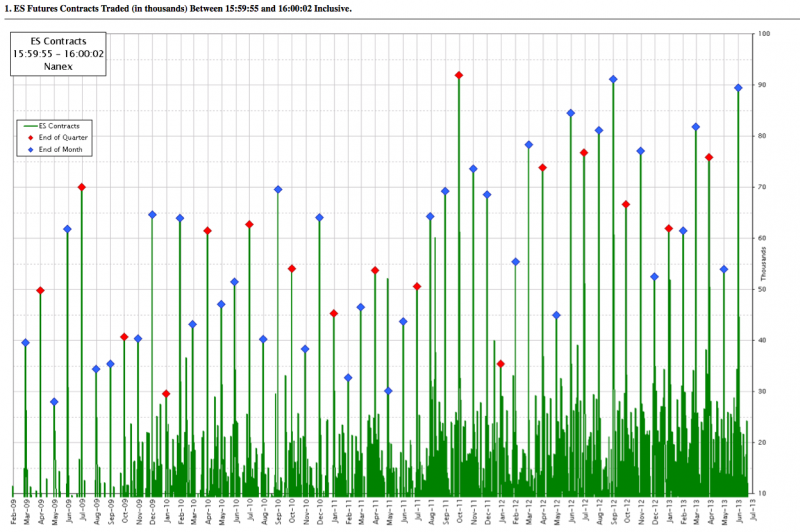Oil, Natural Gas and Inflation
At first, the inflation argument seems plausible enough.
There would appear to be little opportunity for an across-the-board stimulation of the inflation fires without there also being a corresponding surge in energy prices. Energy is the single most pervasive underpinning of economic activity.
In fact, post-facto analysis of the 2008 run up in both natural gas and
oil prices does provide some credence to the idea that rising energy costs did serve as a precursor to inflation.
However, there is a caveat. It's one frequently confronted in all types of analysis.
What appears to be a causal relationship (in this case concluding that rising oil and
gas prices produced an increase in inflation) actually simply masks a deeper reason for both.
As it turns out, the deeper reason for the move was its relationship to interest and
credit. This is critically important for individual investors.
Here's why.
Selecting oil and gas stocks is no longer a function of aggregate cost considerations in broader economic sectors. The presumption that a spike in oil prices will result in a spike in inflation is just not manifesting itself these days.
The shortcoming of relating energy to inflation is found in how that relationship is
filtered by other considerations.
Put simply, energy prices in general - and oil and gas in particular - are no longer a direct driver of inflation.
Rather, the current oil/
gas price component has been showing a resiliency in the absence of inflation.
It has also done so despite lower general market performance (NYMEX WTI, or West Texas Intermediate, benchmark crude futures are up 3.8% for the month through close yesterday; in contrast, the S&P is down 1.7%).
Oil Prices and the End of QE
This month, I have been discussing the relationship between oil prices and interest rates (
Why the Fed's QE Is about to Move Oil Prices, June 14, 2013;
Why "Deleveraging Markets" Will Drive Up Oil Prices, June 24, 2013).
Because what lies behind the current dynamic involves the combination of angst over Fed policy changes, an almost forty-year record collapse in
gold prices, and the emergence of crude oil as a new store of market value (on which see my previous discussion in
Why Oil is Becoming the New 'Gold Standard,May 20, 2013).
Now some of this will play out in a more protracted and longer-term inflationary concern. As bond prices continue to decline and interest rates rise, the normal trade off between the genuine costs of energy and the effective price to the general economy will play out differently this time around.
The change essentially comes from the expected departure of QE. Actually, this is a
perception of market makers, especially those who have made too much use of cheap credit as the Fed kept interest rates low.
The reality is the end of QE is at least a year away, even if the economic recovery speeds up. Even then, there are clear indications that the Fed will continue selective buying of bonds as the need arises.
What ends is the "safety blanket bailout" - the guarantee that there will be $85 billion in bonds and related instruments purchased out of the market each month. Many economists believe this (expensive) set of federally-sponsored training wheels for the free market bicycle that is supposed to be peddled by supply and demand (not daddy) have served their purpose.
The disengaging of the Fed, however, will have an inflationary impact unless the bond pricing situation can be met. Yet that cannot happen with another round of issuing newly minted credit that does not result in tangible asset or value generation in the economy itself. Pumps can be primed from the outside, but the object remains a sustainable independent water flow.
The Fed is banking (in a more real sense that it might appear at first glance) on an accelerating economic recovery to provide value production. This is essential to offset the inflationary impact the central bank's own monetary policies created.
Parts of QE appear to have been necessary to avoid a catastrophic meltdown following the credit crunch. But such actions ultimately have a price and that usually emerges in an inflationary cycle.
This time around, oil prices are a restraining byproduct rather than a precipitating cause. Nat gas serves a similar function, although the expected expansion of demand from the exports of liquefied natural gas (LNG) and an increasing replacement for coal in electricity will be tempered by considerable surplus reserves available for lifting.
What Investors Need to Keep an Eye On
We still wait on how all of this plays out, but one element is already becoming clear.
As it assumes a more dominant position in expressing more extended market value, oil and gas are allowing the average investor greater leverage in working profit out of upcoming market gyrations. .
I will have more to say on this as the directions become more manifest, but this will not be a "rising tide lifts all boats" approach.
We need to watch the ratio of E&P (exploration and production) costs to wellhead revenues (what the oil and gas provide right out of the ground). The object will be to identify which companies are positioned to benefit as interest rates rise, inflationary concerns emerge and costs reflect both.
Early identification here will result in some nice profits as the new market environment develops.
 The joint venture was launched in 2007 and struggled to make profits initially
The joint venture was launched in 2007 and struggled to make profits initially
























